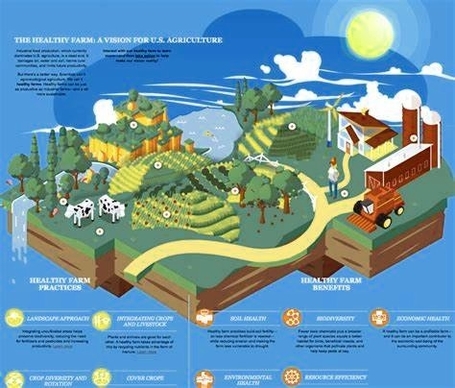
The future of agriculture is expected to be shaped by data and connectivity, according to a report by McKinsey & Company. The agriculture industry has undergone significant changes over the past 50 years, with advances in machinery, seed, irrigation, and fertilizers leading to more efficient cultivation of more land. Now, agriculture is in the early days of yet another revolution, at the heart of which lie data and connectivity. Artificial intelligence, analytics, connected sensors, and other emerging technologies could further increase yields, improve the efficiency of water and other inputs, and build sustainability and resilience across crop cultivation and animal husbandry.
The COVID-19 pandemic has highlighted the importance of digital tools in agriculture, such as remote monitoring, precision farming, and e-commerce. These tools can help farmers overcome the challenges of supply chain disruptions, labor shortages, and changing consumer preferences. For example, precision farming can enable farmers to optimize the use of resources such as water, fertilizer, and pesticides, leading to higher yields and lower costs. E-commerce platforms can provide farmers with direct access to consumers, reducing the need for intermediaries and improving the transparency and traceability of the food supply chain.
Advanced connectivity technologies like LPWAN, 5G, and LEO satellites are expected to play a crucial role in unlocking the value of data and IoT in agriculture. McKinsey & Company estimates that if connectivity is implemented successfully in agriculture, the industry could tack on $500 billion in additional value to the global gross domestic product by 2030. This would amount to a 7 to 9 percent improvement from its expected total and would alleviate much of the present pressure on farmers.
However, agriculture remains less digitized compared with many other industries globally. To address the challenges poised to further roil the industry, agriculture must embrace a digital transformation enabled by connectivity. The report by McKinsey & Company suggests that agriculture should focus on four key areas to achieve this transformation:
1. Connectivity infrastructure: Agriculture needs a solid connectivity infrastructure to enable the use of digital tools and data. This requires investment in broadband, mobile networks, and satellite technology,

